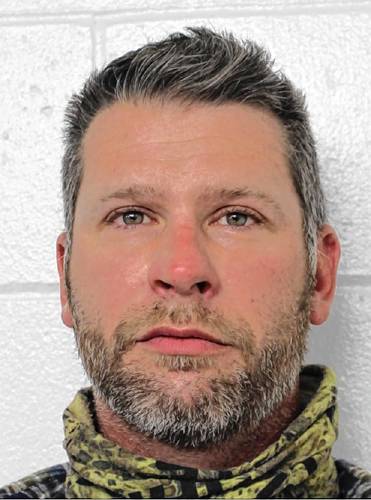By DAMIEN FISHER, InDepTHNH.org
Grafton County taxpayers were charged close to $9,000 to investigate an alleged affair between county employees, but they don’t get to know about it.
Grafton County’s Human Resource Department initiated the investigation in the summer of 2021 after learning of the alleged affair involving Grafton County Correction employee Nicole Cremo and her boss, according to court records. Cremo is the alleged victim in the stalking case against former Lebanon Police Lt. Richard Smolenski.
The county is refusing to make public the report from the employment law firm Jackson and Lewis, citing attorney client privilege when InDepthNH.org filed a right-to-know request this week.
The county is also refusing to make public emails sent and received by county officials dealing with the investigation, saying it is covered by an exemption for personnel issues, and releasing the emails could constitute an invasion of privacy.
What is known is that the county hired Jackson and Lewis, a national law firm with an office in Portsmouth to investigate the alleged affair sometime in June of 2021. Smolenski was charged the same month with stalking Cremo and threatening to send damaging information and intimate photos to friends, family, and her employers.
Records the county did release show Jackson and Lewis sent three invoices totaling a little more than $8,600 for the investigation. The charges include multiple witness interviews and conversations with different attorneys.
Cremo’s attorney, Robin Melone, has denied that Cremo was a subject of the investigation by the county. The invoices show that Melone was in communication with Jackson and Lewis attorneys as part of the investigation.
Lebanon District Court Judge Michael Garner gives a hint about the thrust of the investigation in an order issued last month in Smolenski’s criminal case.
“(Smolenski) is charged with stalking on specific allegations that he sent the victim emails threatening to release embarrassing photos of her and information about her including information that she had an affair with her boss,” Garner wrote in a Feb. 16 order. “Both the victim and her boss were employees of Grafton County. Per the State, Grafton County Human Resources, presumably a county agency, hired an attorney to conduct an investigation of the claim about the affair; the attorney generated a report.”
Garner is considering releasing the interview recordings and other materials compiled by Jackson and Lewis through its investigation as part of the criminal case. Smolenski was supposed to start trial this week on the stalking charges, but that has been delayed again after his attorney, Anthony DiPadova, filed a motion for the report and the materials. The report will not be released as Garner agrees it falls under attorney/client privilege.
Smolenski had been with Lebanon for years, working his way up to being the department’s prosecutor, before he was fired in the wake of the stalking investigation. However, this was not the first time Smolenski broke the rules as a police officer over an affair.
Smolenski was disciplined for having an extramarital affair with an 18-year-old woman while on duty and in uniform in 2006. He received a three-day suspension and six months probation for the affair and sexually inappropriate emails he sent while on duty. He also got involved in a harassment case involving the teen, and ordered someone with whom she had a conflict to stop harassing her, according to court records.
The New Hampshire Attorney General’s Public Interiority Unit is now reviewing the case of Scott Traudt, who served a year in jail after being convicted of assaulting a Lebanon police officer. Smolenski was a key witness in the trial. Traudt proved through a series of lawsuits and right-to-know requests that the state hid Smolenski’s 2006 discipline case even though it should have been handed over to the defense before the 2008 trial.





